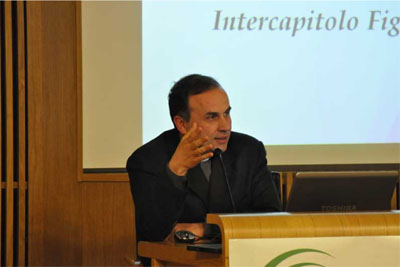– Domenico Pompili
Inhabit/Imbue*
“To inhabit” is a typically human act. Only human beings “inhabit” a place. As Ivan Illich wrote: “In many languages, ‘to inhabit’ is synonymous with ‘to live.’ To ask a person, ‘Where do you live?’ means asking where it is that an individual’s daily existence shapes the world. Tell me how you live and I will tell you who you are.”
To inhabit is typically human because it presupposes a conscious relationship made up of responsible choices based upon present conditions, that is, made up of relationships with one’s surroundings and with people. Italian cities, with their public squares and streets where people can walk (as opposed to the megalopolis where the streets are made to be travelled by car) are a unique example in the world of a synthesis of beauty, history, sociability, where “communal spaces” are just as important as private ones.
As anthropologists know well, “to dwell” puts one in relation with a tradition (with housing styles that come from the culture itself; with meanings and values that are “translated” into forms and practices of dwelling), but it also considers the possibility of “creative fidelity” and innovation. …
